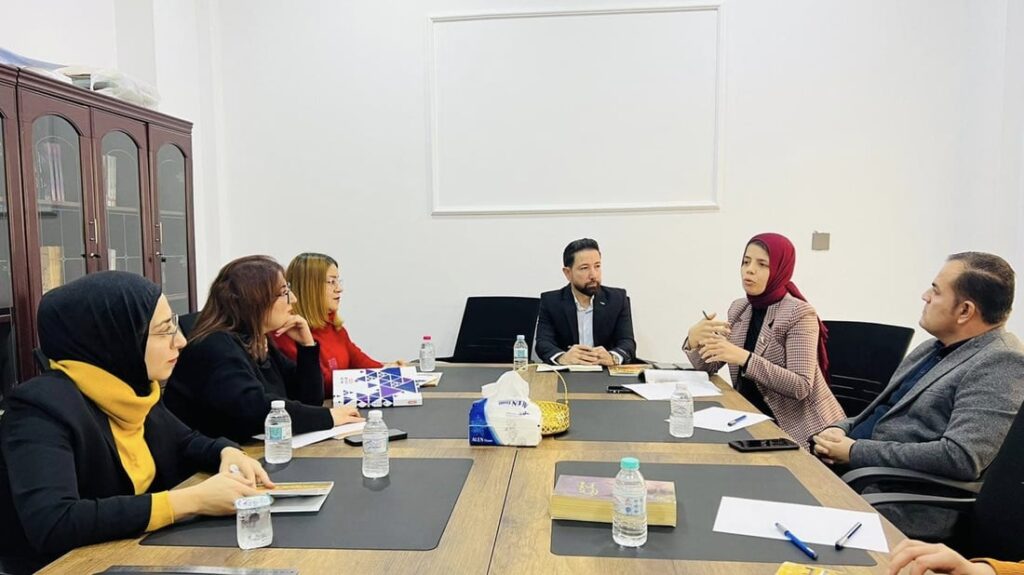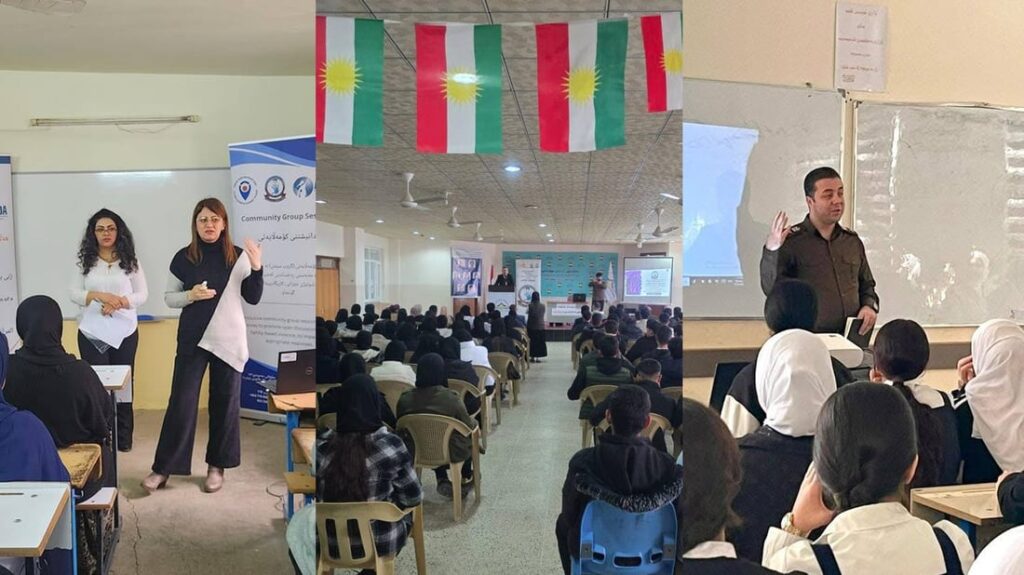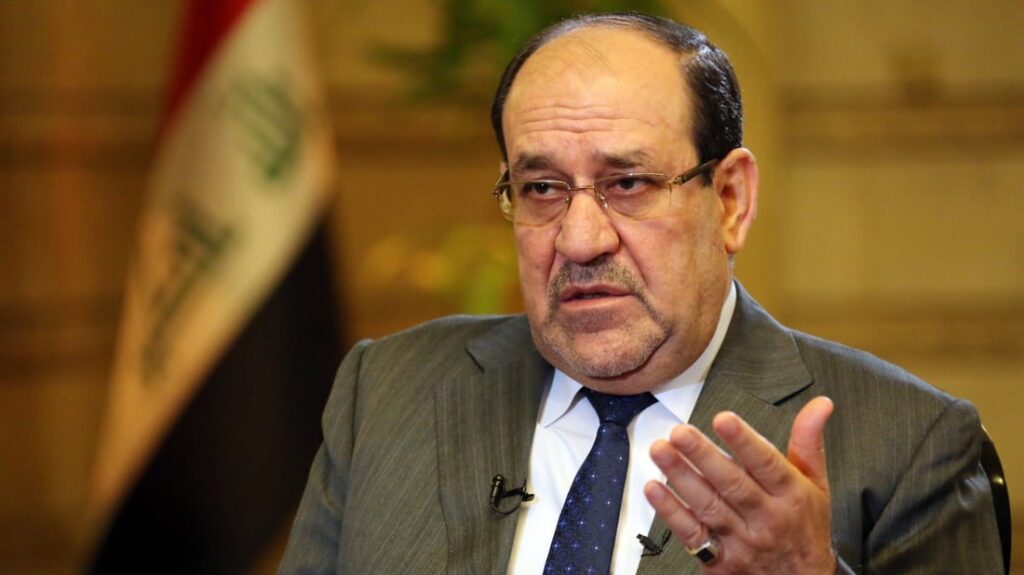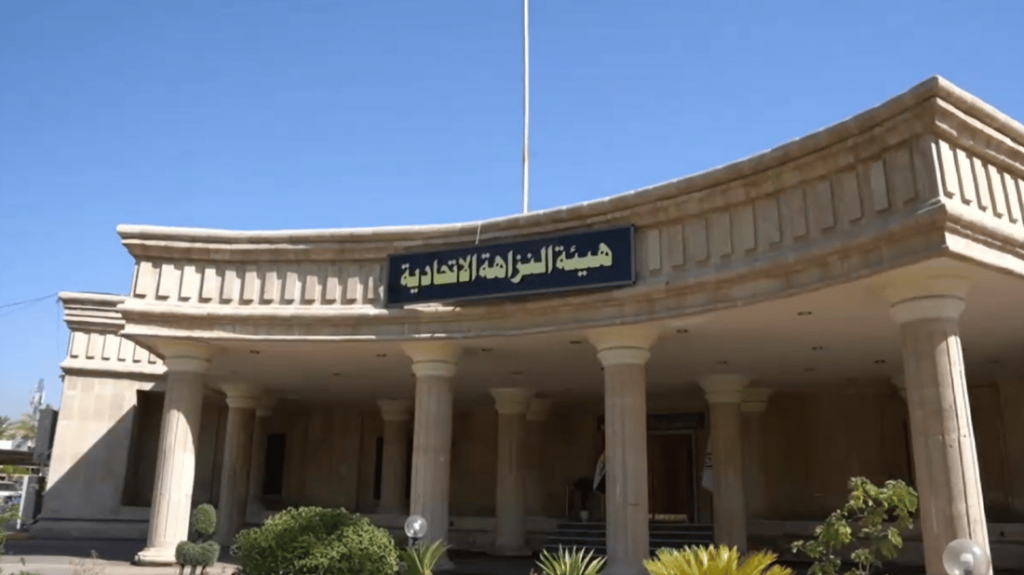Iraq: How a Collective of Iraqi Women Is Bringing the Country Closer to Peace

A delegation representing the Iraqi Women’s Network attended the Convention on the Elimination of all Forms of Discrimination Against Women (CEDAW) session on the 20th and 21st October 2019 and briefed the UN Committee on the CEDAW shadow report submitted end of September the same year.
The Network worked extensively with more than 100 local organisations to draft and submit the 2019 shadow CEDAW report, and WILPF worked with the Network during the final stages of the 2019 CEDAW shadow report. In it, they raised issues on women’s rights violations in Iraq and asked the committee to put pressure on the Iraqi government to commit to its obligations towards women’s rights.
No Woman Is an Island
Since its establishment in 2003, the Iraqi Women’s Network has been a beacon of light, leading the struggle for women’s rights in Iraq.
The Network is a civil society collective that holds the Iraqi political class to the highest democratic standards. Despite all the upheavals that Iraq has been though, the Network has never stopped working with determination to uphold Iraqi women’s rights.
It brings together more than a hundred organisations from all across Iraq; but also includes academics, lawyers, and media figures. All are now working together to advance women’s rights and empower them economically, socially, and politically.
The Network believes that women have a crucial role to play in achieving peace and security in Iraq. Their rights must be upheld.
One of their most significant achievements was their victory in the struggle to prevent the adoption of Decree 137. The Decree was introduced by the Iraqi Supreme Court in 2004 when the new Iraqi constitution was first being drafted; Decree 137 enshrined Sharia jurisprudence as the basis for the law of personal civil status. If it had passed, it would have resulted in the complete destruction of hope for women’s equality, dignity, and justice in Iraq, effectively permitting the total submission of women to men in all aspects of life, legalising honour killings and child marriage.
The Iraqi Women’s Network, which back then was formed of more than 80 organisations, launched a vast protest campaign and did not relent until the article was withdrawn.
They also pressured the government to put in place quotas that ensure women’s participation in all walks of life.
Today they run campaigns to raise awareness amongst women about the Iraqi and international law, women’s rights in Iraq, encouraging women to put their names forward to be elected members of local councils, municipalities and the parliament. They train women on how to run political campaigns and help them with their campaigns once they become candidates.
In 2014, the Network prepared its first shadow submission for the CEDAW review of Iraq . The submission covered the period between 1998 and 2014 and it was the first submission ever prepared by a civil society organisation in Iraq.
In 2015 in light of the ever-increasing presence of Daesh in the region, the Network got together with other women’s organisations from Iraq and the region to convene a forum on women’s peace and security. The Forum concluded in the Erbil declaration. One of the seventeen points raised in the declaration was “To empower women to participate in the decision-making positions, in the negotiations for conflict resolutions and national reconciliation, in the operation of peacekeeping, security and building a State of equal citizenship, and to disseminate the culture of non-violence and tolerance.” According to the Iraqi Women’s Network, this declaration fed into the drafting process of the UN Security Council resolution 2242 (2015) which aimed at doubling the number of women participating in peace processes and peace keeping operations.
Q&A with Amal Kabashi – Coordinator of the Iraqi Women’s Networks:
Why is it important for women to network and collaborate?
Working together gives us real strength. It gives us a louder voice in demanding our rights and helps us achieve real justice.
What is feminism?
Feminism, in my opinion, is the active and effective total equality between men and women. Feminism doesn’t mean we are against one another, but that we strive to be equal.
What do you love about your job?
I value the chance to be at the centre of action. Here I am able to start initiatives that help Iraqi women achieve equality but also work towards peace. I feel that I have managed to truly make a difference to women’s lives by raising awareness about the issues that affect their daily lives.
Can you describe the situation in Iraq?
The situation in Iraq is going from bad to worse because of a series of devastating political mistakes throughout the decades. Those mistakes resulted in society falling victim to a range of economic and social problems. First the dictatorship that led to sanctions being imposed on Iraq, which destroyed our infrastructure, then after 2003, Iraq entered another dangerous phase with a system that is based on sectarian divisions. All of that led to the complete ruin for the fabric of society; and all of that specifically rebounded badly upon women.
We know that you have joined the protest movement that is happening in Iraq at the moment. What are your demands?
I just came back from protesting in the streets with other women activists. We were chanting for equality, democracy, and justice. Our aim is to change the whole system and build a democratic civil society that respects human rights.
Peaceful Demonstrations Sweeping Iraq
Nationwide anti-government protests in Iraq have swept the country since early October over a plethora of long-standing grievances, including lack of basic economic and social services, rampant corruption, and entrenched sectarianism within a fragile political system. Larger numbers of Iraqis, particularly the youth, are taking to the streets and there is no sign of people giving up and going home. The demands are simple: ending corruption, enhancing public services, and dismantling the sectarian political system.
The protests have often been met with excessive use of force by Iraqi authorities despite the protests being peaceful. In less than a month, hundreds of protestors have been killed, thousands injured, and the security forces have launched a massive wave of arbitrary detention.
Despite the dire security situation, Iraqi women activists haven’t given up on courageously taking to the street. We have been in close contact with our Iraqi partners since the protests started – they have been sharing updates and pictures of the protests in light of the government’s crackdown on internet services. Last night Amal, the coordinator for the Iraqi Women’s Network said “we will not stop until we’ve changed the whole system. Enough is enough! We want to live in peace and we want an equal society.”




